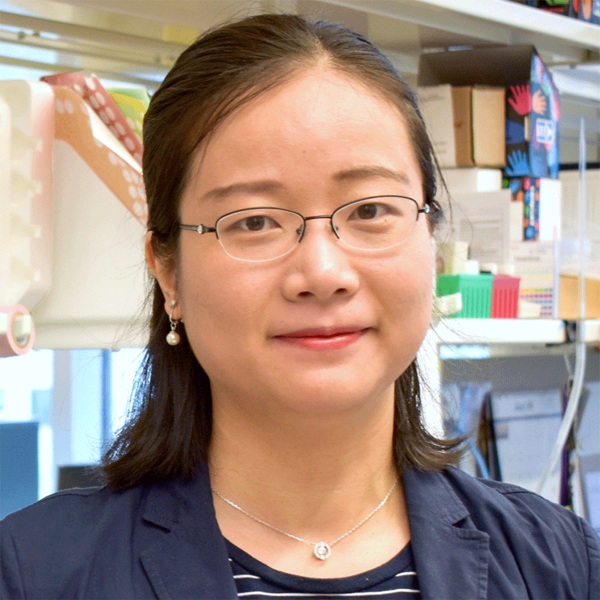题目:Developing precision cancer solutions via microenvironmental protease profiling
主讲人:Professor Liangliang Hao, Department of Biomedical Engineering, Molecular Biology, Cell Biology & Biochemistry at Boston University, and Cancer Center at Boston Medical Center.
时间:2023年11月13日(周一)14:00
地点:霞光楼220会议室
邀请人:张川 教授

报告人简介
Dr. Liangliang Hao is an Assistant Professor in the Department of Biomedical Engineering, Molecular Biology, Cell Biology & Biochemistry at Boston University, and Cancer Center at Boston Medical Center. She develops precision engineering solutions to improve the specificity, adaptability, and portability of cancer diagnostics and therapeutics. Prior to her professorship, she received her Ph.D. from Northwestern University under the guidance of Prof. Chad Mirkin and did her postdoctoral research in Prof. Sangeeta Bhatia’s lab at the Koch Institute for Integrated Cancer Research of MIT. Over her career, Dr. Hao has been awarded multiple honors and grants, including fellowships from the Howard Hughes Medical Institute, the American Cancer Society, an NIH Pathway to Independence Award, and a PhRMA Foundation Faculty Starter Award in Translational Medicine.
报告摘要
Integration of precision diagnostics and new personalized therapies holds significant promise to improve the management of a variety of diseases, including cancer. The overarching goal of my research is to leverage chemical methods and disease biology to engineer tools enabling precision medicine. Besides the tumor-intrinsic genetic alterations, tissue-environmental features during tumor progression and invasion, such as the aberrant extracellular matrix remodeling, stromal composition, and immune components, open engineering opportunities to develop novel biomarkers and therapeutic targets. In this talk, I will focus on a functional approach to profile the tumor microenvironment using in vivo probes that can be locally activated by disease-associated proteases to generate molecular reporters in the biofluid. These in vivo probes, termed synthetic biomarkers, represent a new platform of precision diagnostics and research tools. To overcome the limitations often associated with molecular biomarkers (nonspecificity, dilution, and rapid degradation), I engineered the synthetic biomarker platform with enhanced specificity and clinical actionability by 1) developing CRISPR-Cas-amplifiable urinary reporters to detect and differentiate disease states at the Point-of-Care; 2) improving noninvasive in vivo imaging capabilities to allow for rapid assessment of disease status and interventional efficacy over time. Collectively, these studies highlight the use of chemical tools with built-in cancer-reactive modules, embracing a vision for precision health through integrated strategies: identification/monitoring, imaging, and intervention in a personalized manner.



